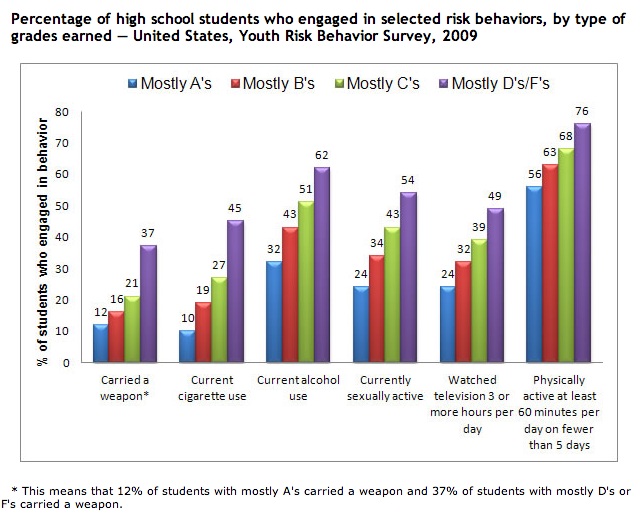Results of the CDC’s annual Youth Risk Behavior Survey (YRBS) are in for 2013. As a pediatrician, I find myself wondering what we’re doing about parent education – does it stop once a child starts school? It shouldn’t! Sometimes it feels like parenting changes daily. We never know what our children will come across on a given day and bring up over dinner. We still need help – from pediatricians, from family and friends, from teachers – to understand where our children are developmentally and how we can teach them to care for themselves.
As a parent, reviewing these results is a eye-opening experience. Nationally, about 5.6% of teens indicate they started having sex before age 13. My daughter’s nearly 10. Even if she’s not among the 5.6% of sexually active youth at her age, she might go to school with someone who is. It’s time we started discussing physical intimacy and the potential risks of this early sexual activity. The survey results also indicate that, of youth that are sexually active, 40.9% didn’t use a condom the last time they had intercourse. In my home state of Ohio (deep breaths mom), 49.2% say they didn’t use a condom.
Risky behaviors aren’t just unhealthy, they can have long-lasting impacts on other areas of a kids’ life. Take a look at the average grades of youth who engage in these risky behaviors:
Other concerning risks behaviors that are both parenting and public health concerns include:
- Though 1 in 5 people in the United States will develop skin cancer in their lifetime, 89.9% of youth surveyed indicated that they only sometimes, rarely, or never used sunscreen. Anecdotally, when I ask patients about it, it’s even more concerning to me that kids are least likely to use sunscreen when they put themselves in the microwave oven scenario of being in a tanning booth. Please don’t let your kids lay on the surface of the sun, even with protection.
- We can’t expect our children to learn and grow when they are overtired. According to the YRBS, 68.3% of youth reported not getting 8 hours of sleep on average school nights. Social media and handheld devices are a nasty combination when it comes to sleep hygiene. Kids report feeling as though they “don’t want to miss out on something” and are busy tweeting and snapchating in bed into the early morning hours. Consider a family docking station where everyone (yes, even you) charges portable devices overnight. Computers and TVs never need to be in a bedroom, but if your kids have any electronics they need to be turned off at bedtime.
- Looking at population trends over time, the percentage of youth that don’t attend school because they felt unsafe at school, or on the way to or from school, has climbed slowly, from 4.4% in 1993 to 7.1% in 2013. I wish I had an easy answer for this. Youth violence is an incredibly terrifying public health concern, leaving most of us (youth, parents, teachers, physicians) feeling helpless. Perhaps one of the most important things we can do for our kids is to keep the lines of communication open. If your kids push you away (as they will often do throughout their adolescence), trusted adult friends (family friends, aunts and uncles, grandparents, teachers, etc.) may have more success.
We’ve found over time that if parents bring up topics with their kids it’s amazing what they’ll share with you. So put away your discomfort around sex, drugs, bullying, smoking, electronics, social media – whatever it is – and talk to your kids!
There seems to be a significant lack of parenting guidance as our children age. Expectant parents take classes to learn the basics of baby care. When children are born, parents receive unsolicited advice every time they leave the house (not to mention on social media). Within the first 18 months of life, many parents bring lists of questions to their infant’s medical check-ups. These routine check-ups give pediatricians the opportunity to remind parents about age-related safety concerns. Yet, once your child begins kindergarten, check-ups become less frequent and more complex. Kids feel uncomfortable when you talk about them in front of other adults – but that’s primarily around things like being overweight so don’t feel like you have to have conversations about tough topics without your kids – knowing you’re concerned might help them to understand the significance of the issue. If you do have sensitive questions, ask to speak with your child’s pediatrician in private – or call the office a couple days before the visit and leave a message so your pediatrician can already be “in the know” at the visit.
Life is a process of learning and growing. When you become a parent it means you learn and grow for 2… Keep the lines of communication open. Don’t assume that because you live a particular lifestyle (socioeconomic, religious, etc.) that your kids are safe. Talk about important things even if they make you uncomfortable. Let’s make the next generation safer and smarter!
